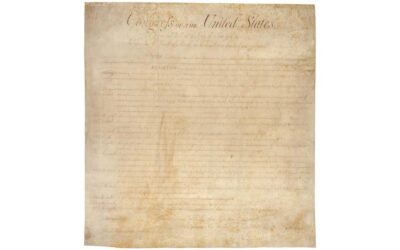No Second Amendment Rights For You
If you are charged with a crime you’re part of the State of Michigan family now. Call us – Because you don’t want to be a part of that family.
Komorn Law (248) 357-2550
A federal judge in Michigan has ruled that a man with a prior misdemeanor conviction for domestic violence remains prohibited from possessing firearms under federal law, even though a Michigan state court had previously set aside that conviction.
Jeramy Wilburn, the plaintiff in the case, began acquiring firearms after his domestic violence conviction was set aside by the state court, believing he was once again eligible to do so. However, the Bureau of Alcohol, Tobacco, Firearms and Explosives (ATF) confiscated his weapons, asserting that he was still federally prohibited from owning them.
Wilburn subsequently sued the ATF and its Director, alleging violations of his Second Amendment rights and seeking a preliminary injunction to have his firearms returned.
U.S. District Judge Susan K. DeClercq sided with the government, granting their motion to dismiss Wilburn’s lawsuit and denying his request for a preliminary injunction. Judge DeClercq explained that under federal law, specifically 18 U.S.C. §921(a)(33)(B)(ii), a prior domestic violence conviction only ceases to be a bar to firearm ownership if the state procedure used to set aside the conviction “completely remove[s] all effects of the conviction.”
Citing the Tenth Circuit Court of Appeals’ decision in Wyoming ex rel. Crank v. United States, Judge DeClercq noted that the terms “expunged” and “set aside” in federal law are intended to be equivalent and require the complete removal of all consequences of the conviction.
The court found that Michigan’s law regarding setting aside convictions does not meet this federal standard. Judge DeClercq pointed out that Michigan law explicitly states that a conviction may still have various legal ramifications even after it has been set aside.
Therefore, Judge DeClercq concluded that “as a matter of statutory construction, the relief Wilburn received under Michigan’s set-aside procedure did not expunge or set aside his conviction for purposes of federal law.”
The 21-page ruling is titled Wilburn, et al. v. Bureau of Alcohol, Tobacco, Firearms and Explosives, et al.; MiLW No. 02-109059.
Link to the full text of the opinion
Recent

Smell of marijuana no longer legal grounds for search
The Michigan Supreme Court has ruled that the smell of marijuana alone is no longer sufficient probable cause for police to conduct a warrantless search of a vehicle. This decision overturns a previous precedent where the odor of marijuana was considered enough...

Michigan Forfeiture News Articles
Can the police sieze your belongings and hold it without charging you with a crime?Civil asset forfeiture is a legal process that allows law enforcement agencies in Michigan to seize property they suspect is connected to criminal activity, even if the owner hasn't...
More
Illegal Firearms in Michigan
Illegal Gun Ownership in Michigan: Insights and StatisticsThe issue of illegal gun ownership in Michigan is a complex one, influenced by various factors ranging from criminal activity to loopholes in regulatory measures. Understanding who owns illegal guns is crucial...
Restoring Second Amendment Rights in Michigan
Restoring Your Gun RightsAs of 4/17/24...There is still a second amendment The Second Amendment of the United States Constitution grants citizens the right to bear arms, a fundamental aspect of American freedoms. However, in some cases, just like every other right...
Transcription of the 1789 Joint Resolution of Congress Proposing 12 Amendments to the U.S. Constitution
This information was taken from archives.gov. One should assume it is factual... but assuming information is a fact is a perilous assumption. Here is what you paid for... Transcription of the 1789 Joint Resolution of Congress Proposing 12 Amendments to the U.S....
Department of Attorney General Prepares for MLEAC Accreditation
LANSING – The Michigan Department of Attorney General (DAG) recently welcomed a team of assessors from the Michigan Law Enforcement Accreditation Commission (MLEAC). The assessors came to examine all aspects of the Department’s compliance with the MLEAC standards in...
When Being Questioned by the Police: Can They Lie to You?
When Being Questioned by the Police: Can They Lie to You? Introduction In the United States, police officers are generally allowed to lie to suspects during interrogations. This is a controversial practice, but it has been upheld by the Supreme Court. There are some...
Ohio Bill Introduced to Allow Each City to Ban Marijuana
With just over a week until Ohio’s voter-approved marijuana legalization law takes effect, a lawmaker has introduced a bill that would allow individual municipalities to locally ban the use and home cultivation of cannabis in their jurisdictions. The legislation aims...

















